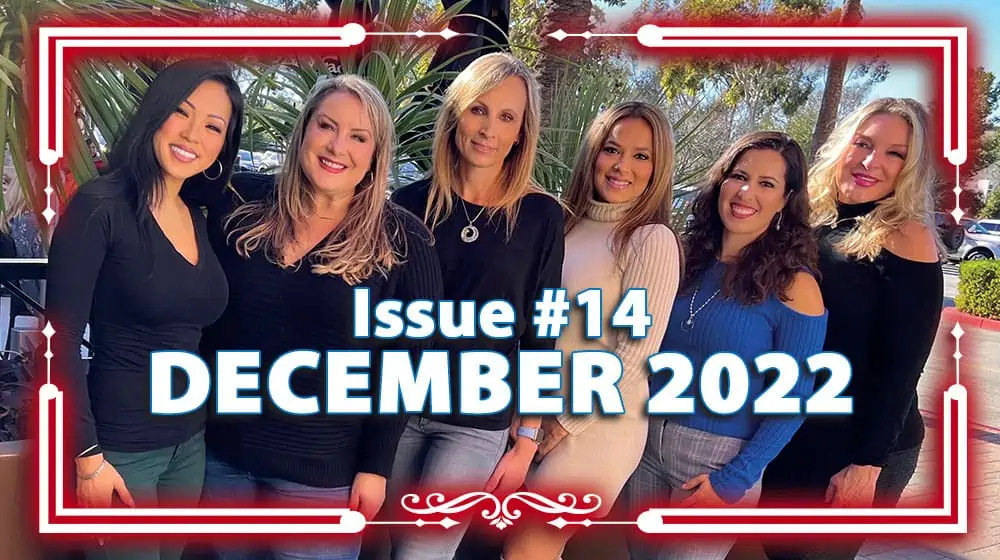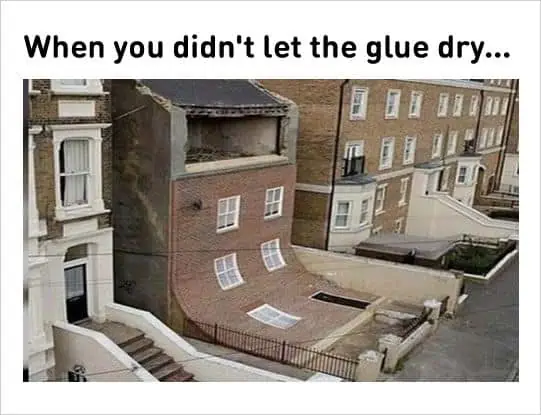

Issue # 14
December 2022

Featured in this edition:
- Meet The RMO Agency Beavers
- Recent Graduate Turned RMO
- CSLB Workers’ Compensation Insurance Requirements
- CSLB Reminds Contractors of Progress Payment Restrictions
- Got A Story? Lunch Is On Us
Introducing the RMO Agency Beavers

Meet Rowdy, Rowie, and Rema, they are the RMO Agency Beavers. Watch their stories below!
Meet Vicki, A Recent Graduate Turned RMO
A recent RMO graduate shares her experience with RMO Agency and why now that she has her own license wants to be an RMO herself. Congratulations Vicki!
CSLB Workers’ Compensation Insurance Requirements

CSLB Shares Additional Details Regarding Workers’ Compensation Insurance Requirement for Four License Classifications
Sacramento, CA – The Contractors State License Board (CSLB) wants to inform active licensees starting January 1, 2023, renewals will not be processed without proof of workers’ compensation insurance for license classifications C-8 (Concrete), C-20 (Warm-Air Heating, Ventilating, and Air-Conditioning), C-22 (Asbestos Abatement), and D-49 (Tree Service), regardless of whether the contractor has employees.
As of January 1, 2023, Business & Professions Code Section 7125 will require workers’ compensation insurance as a condition for issuing, reinstating, reactivating, renewing, or maintaining a license in one of these classifications. Section 7125 also requires the removal of these classifications from any license that is not in compliance as of July 1, 2023. CSLB understands and will apply these deadlines in the following manner.
If you hold one of these license classifications:
- After January 1, 2023, no license in these classifications will be issued, reinstated, reactivated, or renewed without a valid Certificate of Workers’ Compensation Insurance.
- If you have an active license, do not have employees, and are not due to renew until after June 30, 2023, CSLB will not require you to have proof of workers’ compensation insurance on file until July 1, 2023.
After June 30, 2023, any licensee holding a C-8, C-20, C-22, or D-49 that does not have a Certificate of Workers’ Compensation Insurance on file with CSLB will have that classification removed. Because it may take time to seek and obtain a workers’ compensation insurance policy, CSLB strongly recommends that you not wait until this deadline to obtain a policy and file your certificate.
The new workers’ compensation insurance requirement for C-8, C-20, C-22, and D-49 licensees is the result of Senate Bill 216 which takes effect January 1, 2023. The only exception in SB 216 is for joint venture licenses, which will still be able to file a certificate of exemption if one of the joint venture license entities has a workers’ compensation insurance policy.
SB 216 also requires that all active contractors – with or without employees – have a valid Certificate of Workers’ Compensation Insurance by January 1, 2026.
Need to Know How to File a Certificate of Workers’ Compensation Insurance with CSLB?
- Information about filing a Certificate of Workers’ Compensation with CSLB can be found on the CSLB website.
- Licensees can have their insurance company or broker file the certificate of insurance online with CSLB.
Need to Know More about Workers’ Compensation Insurance?
- Contractors can obtain workers’ compensation coverage from any licensed insurer.
- The California Department of Insurance has workers’ compensation insurance resources on its website.
- The State Compensation Insurance Fund provides workers’ compensation coverage to many contractors and offers resources specifically designed for the construction industry. Contractors can obtain an online quote from State Fund on its website.
If licensees in the C-8, C-20, C-22, and D-49 classifications already have a Certificate of Workers’ Compensation Insurance on file with CSLB, this is informational only and no further action is needed.
CSLB Reminds Contractors of Progress Payment Restrictions

Sacramento, CA – The Contractors State License Board (CSLB) wants to remind all contractors that the Business and Professions Code (BPC) restricts payments on home improvement contracts to a maximum down payment of $1,000 and subsequent payments must not exceed the value of materials and work performed, including for residential solar.
BPC sections 7159 and 7159.5 contain mandatory home improvement contract provisions regarding down payments and progress payments for home improvement work. The definition of home improvement includes solar energy systems.
Home improvement contract provisions limit contract payments and require the following language to be in the contract, pursuant to BPC sections 7159(d)(8) and (9).
- The heading: “Down Payment”
- A space where the actual amount of the down payment appears
- The following statement in at least 12-point boldface type: “THE DOWN PAYMENT MAY NOT EXCEED $1,000 OR 10 PERCENT OF THE CONTRACT PRICE, WHICHEVER IS LESS.”
- Schedule of Payments: If a home improvement contract includes a payment schedule, rather than payment at project completion, the progress payment(s) must show the amount of each payment and explain what work, materials, or services have been completed for that payment, and be preceded by the heading “Schedule of Progress Payments.”
- The following statement must be included in a contract that provides for a payment schedule in at least 12-point boldface type:
-
- “The schedule of progress payments must specifically describe each phase of work, including the type and amount of work or services scheduled to be supplied in each phase, along with the amount of each proposed progress payment. IT IS AGAINST THE LAW FOR A CONTRACTOR TO COLLECT PAYMENT FOR WORK NOT YET COMPLETED, OR FOR MATERIALS NOT YET DELIVERED. HOWEVER, A CONTRACTOR MAY REQUIRE A DOWN PAYMENT.”
Contractors found to be in violation of home improvement contract law are subject to disciplinary action from the CSLB as well as inclusion on the Public Utilities Commission Watch List. In addition, a violation of BPC section 7159.5 and its provisions regarding down payment and progress payment restrictions is punishable as a misdemeanor.
To ensure you are complying with home improvement contract law, please see CSLB’sContracting for Success Brochure.
Got A Story? Lunch Is On Us...
Got a successful RMO-Contractor relationship? Meet for lunch, share your story & tips of good RMO practices, send us a video and lunch is on us!
Details apply, terms are stated below and at the end of the video.
Terms: Send the link to your video to:
Story@RMOAgency.com
Receipt required to redeem payment. Payment to be equal to receipt presented or $50, whichever is less. Compensation to be made in the form of a Visa or MC Gift Card. Video Must be 2-5 minutes in length. One submission per person per calendar month. By submitting, you attest the story you share is yours and accurate to the best of your recollection. By submitting you are allowing RMO Agency to use your video for promotional purposes without any further compensation to you or anyone else involved. RMO Agency reserves the right to determine if submissions are appropriate and useable, any submission determined inappropriate or unusable, will not be compensated.





